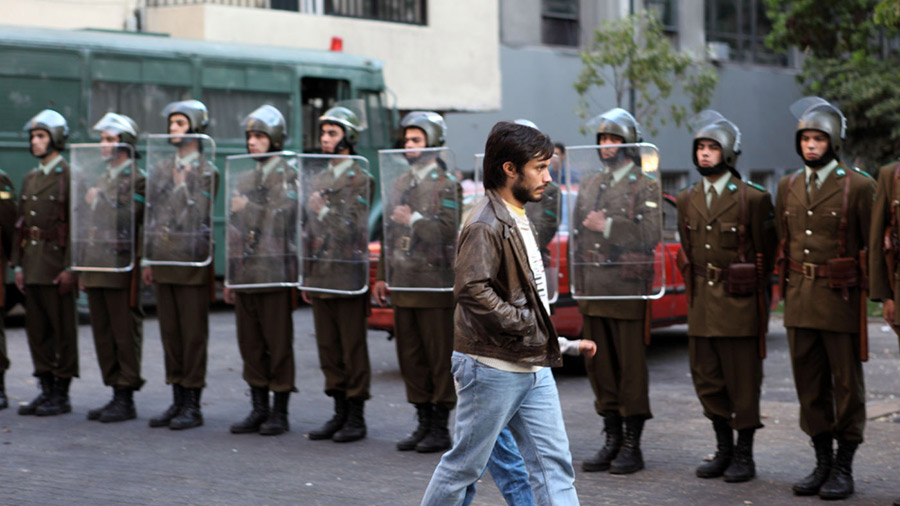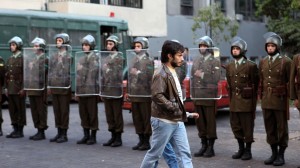With No Rather than labouring the potential dramatic political thriller approach, which had it been a Hollywood product it certainly would have, director Pablo Larraín chooses to take a smart and frankly refreshingly route handling bleak true life events in a slyly humorous and breezier manner. In 1988 infamous dictator Augusto Pinochet calls for a referendum to seal his permanence in power, leaders of the opposition persuade a slick young advertising executive to head their ‘No’ campaign. Under the firm scrutiny of the despot’s watchmen, the ‘No’ team conceive a bold plan to win the election and help free Chile from oppression.
Visually No convincingly utilizes its setting and period; the whole film is steeped in a garish eighties haze, smartly weaving in stark archive footage and well done reproduction of the spangled Americanised televisual campaign. The advertising backbone of the narrative is a smart and enlightening thread that manages to intrigue and entertain; it serves as an approachable point of view through which to understand the country’s crisis. Where performances are concerned the majority of the cast come and go rather briskly and merely serve as employees and naysayers to move actions and decisions forward. Gael Garcia Bernal is a fine actor whose hit rate has varied over the last few years thanks to his pretty face often gracing scenes in some unappealing melancholy indies and disappointingly a couple of sickly (and commercially baron) rom-coms, so it is nice to see him re-gaining some interesting mileage back. As René Saavedra it is arguable that the role isn’t the most intense considering the characters part (albeit a debatably distant one) in bringing down a Chilean dictator but the portrayal is capable and subtly strong. There is a sub-arc surrounding René’s son and his son’s mother that falls rather flat, its a somewhat unwelcome element due to it feeling like an afterthought and adds little in having us empathise much further with our protagonist. The lack of character exploration doesn’t hinder the interest in the events on screen but it does slightly mar the film with a lack of human investment that renders most of the players beside the point. The biggest example of missed character depth is the most interesting relationship on show; that of René and his mentor and boss (nicely played by Larraín staple Alfredo Castro) who is hired by the opposing ‘Yes’ strategists, this provides the best interactions in the film and harbours a complexity that elevates the tension much needed between the characters rather than just shrouding them with the bigger picture of national issues.
All in all No is a competent and interesting watch with a lot of tactful skill on hand, avoiding falling too dry thanks to Larrain’s already proven originality, with his strong previous films Tony Monero and Post-Mortem. Whilst admirable it’s not quite as solid as you feel it should have been and with its intimate tone serves a little light on individual connection which could have lent a deeper tautness and made it a more memorable experience. Although not game changing No is certainly deserving of praise, acts as a good glimpse into Chilean cinema and as an introduction to a director who is becoming a great poster boy for South American film.





